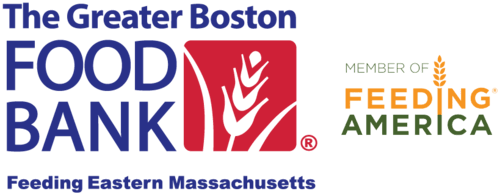This is Hunger and Homelessness Awareness Week
This week is Hunger and Homelessness Awareness Week! From November 12th to 20th each year, GBFB recognizes the interrelation between food and housing insecurity.
The past few years, the Greater Boston area has seen major increases in the cost of housing – both for purchase and for rent. According to the Bureau of Labor Statistics, food prices in September 2022 are 13.0% higher nationally than they were in September 2021. Prior to the intense spikes in inflation, Massachusetts has always had a high cost of food. Feeding America has found that Massachusetts has the fourth highest cost for groceries in the country, and among the highest ‘cost per meal’ prices.
The combination of housing price hikes for renters and owners alike, and the spike in food costs leave more Massachusetts residents vulnerable to hunger and housing insecurity. Meanwhile, wages and salaries have only increased around 1.3% — a negligible amount in relationship to the huge wave of inflation. Research and the lived experience of our neighbors demonstrates that food insecurity is a strong predictor of housing insecurity and vice versa. Our partners at Children’s HealthWatch co-authored a paper which found that stable housing is tied positively to higher educational achievement, better long-term health outcomes, and greater food security – among other benefits.
Hunger and Homelessness Awareness Week, a project led by the National Coalition for the Homeless, recognizes the gravity of the financial challenge people are facing across our region. It serves as a reminder that we all have a duty to help end hunger here as the holiday season begins.
At Greater Boston Food Bank, we’re innovating our approaches to supporting our neighbors. This year alone, we’ve distributed more than $800,000 in direct financial support to our partners. We’re also working on policy level solutions to hunger locally. This week, members of the public affairs team will be joining partners at UMass Lowell to advance Hunger Free Campus Legislation. The legislation aims to reduce hunger among students at public postsecondary institutions so they can dedicate their funds to housing and focus on their education.
GBFB and our Feed Kids Coalition Partners have seen success in getting universal school meals extended one more year for our Massachusetts students. We continue to advocate enshrining the legislation permanently into law. That way, we can guarantee food for our kids, no matter what their housing situation is outside of the school day.
